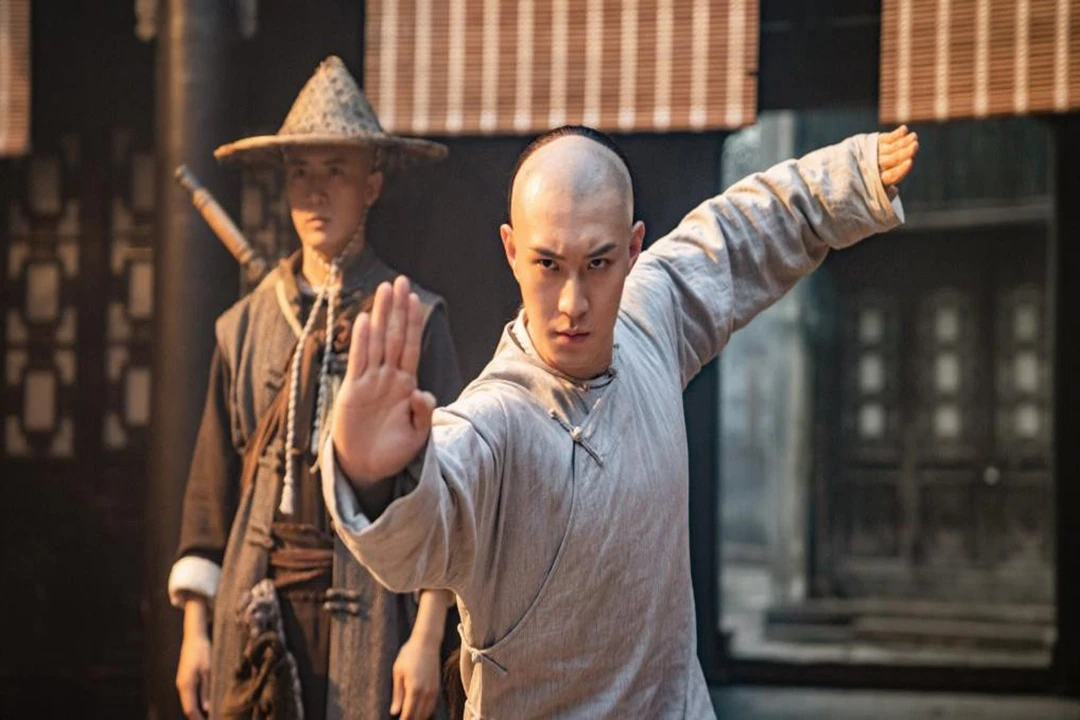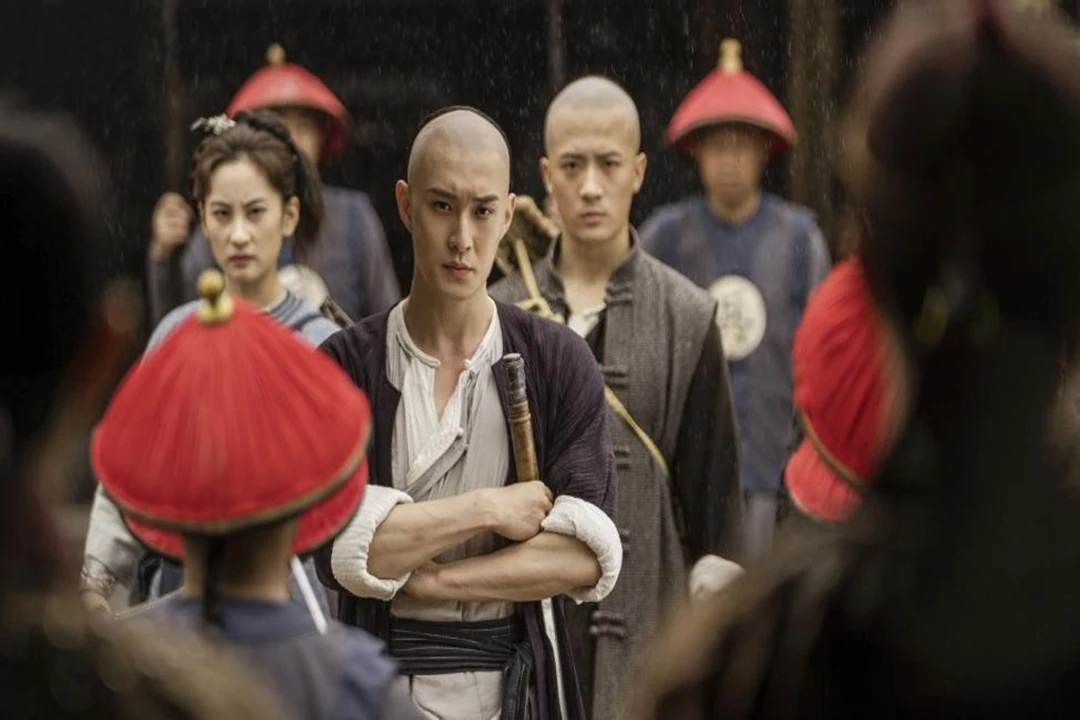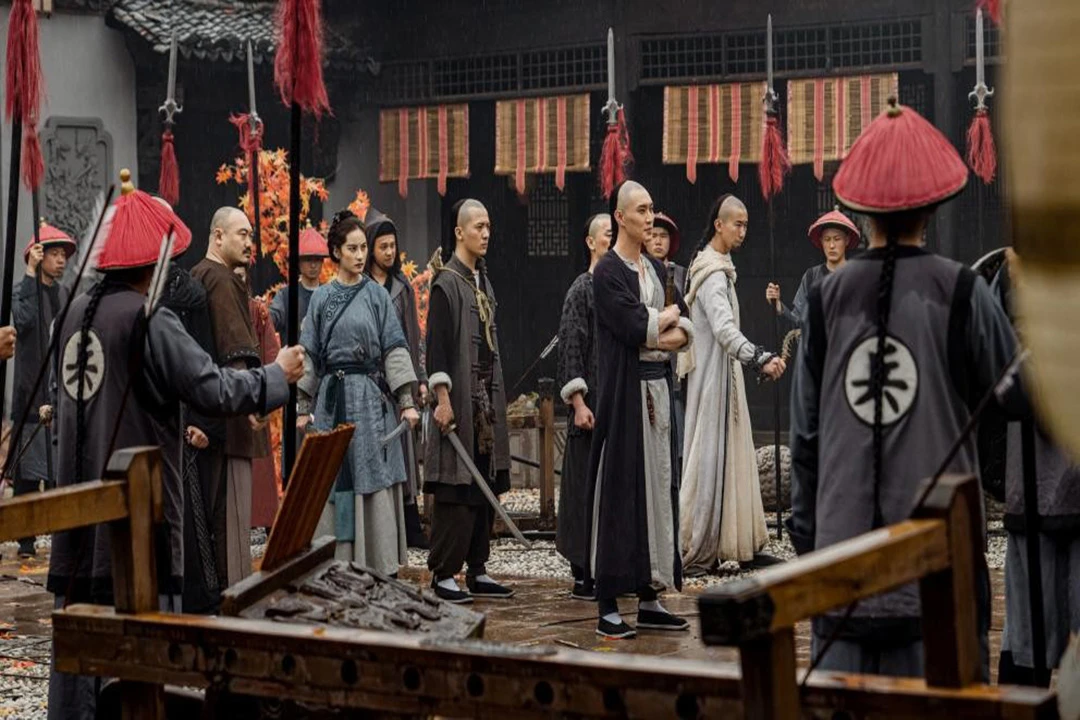“The Book and the Sword” is the first of Jin Yong’s fourteen renowned works, holding a special place in the hearts of wuxia fans and the martial arts fiction market. Remaking this novel is not only a nostalgic revisit to a childhood classic but also a continuation of the wuxia genre’s glory. Considering that most viewers are already familiar with the plot, the creators have boldly innovated on the original work, opening up new storylines, adding crucial new characters, and expanding the personality traits of existing characters.
Set in the early Qing Dynasty, the story revolves around the Red Flower Society, a group of chivalrous heroes led by the fourth chief, Wen Tailai, who fight against the Qing government to restore the Ming Dynasty and protect the weak. When Wen Tailai is captured in an ambush by the imperial court, the newly trained Chen Jialuo is appointed as the new leader of the society. Upon his arrival at the headquarters, Chen Jialuo is immediately pursued by assassins. After several entanglements and escapes, he is saved by Yu Ruyi, a singer from the Hundred Flowers Pavilion. Rumors spread throughout the jianghu (martial arts world) that Chen Jialuo holds the secret to the Prince of Fu’s treasure. He decides to use this information to his advantage, enlisting the help of Yu Ruyi, who is skilled in disguise, to extract information about Wen Tailai’s imprisonment from the government official Qian Jingli. Together with Red Flower Society members Zhao Banshan and Luo Bing, they embark on a mission to rescue Wen Tailai.
Along the way, Chen Jialuo continuously encounters ambushes from the imperial court while developing a budding romance with Yu Ruyi. The identity of the traitor within the Red Flower Society remains a mystery, and more shockingly, as the entire Jianghu and court are closely monitoring the Prince of Fu’s treasure, an even greater royal conspiracy is quietly brewing.
Despite numerous adaptations, including some high-budget productions with strong casts, this version of “The Book and the Sword” still manages to deliver an impressive performance. It is well-known that the wuxia genre has been in decline for years, with audiences growing tired of slow-motion fight scenes, dull filters, and exaggerated costumes and makeup. At the root of the problem is the lack of the most essential element in recent wuxia films and television works: the spirit of “Xia” (chivalry). This film firmly grasps the essence of “Xia,” firstly by putting in tremendous effort in the action scenes. It abandons slow-motion, dance-like fights and returns to a powerful and fierce martial arts style. Each move and technique in the characters’ confrontations exudes the bold and chivalrous flavor of the Jianghu, enough to make the audience’s blood boil with excitement.
In terms of costumes and makeup, the creators stay true to the rustic narrative environment. The Red Flower Society members wear simple attire, with their appearances highlighting the heroic spirit of the Jianghu grassroots. On the other hand, Emperor Qianlong and the Qing court officials are adorned in luxurious clothing, showcasing their noble status. The realistic style of the costumes and makeup greatly helps the audience immerse themselves in the sword-wielding world of wuxia.
The high-quality production standards can be attributed to the professional cast and crew. Director Liu Binjie has extensive experience in directing action films, with previous works including “Mutant Girls Squad,” “White Fox,” “Lu Ban’s Four Disciples,” and “The Great Hypnotist,” achieving good box office results and reviews. Action director Li Wei is equally experienced, contributing many highlight action scenes in feature films such as “Dunhuang Hero” and “Tiger Robbers,” as well as online movies like “Reloaded Warfare,” “Coffin Mountain Ancient Tomb,” “Boss Lady 3,” and “Tomb of the Wolf King of Western Xia.” He can design ingenious action sequences based on the characters’ personalities and the story’s setting.
The lead actor Li Mingxuan, who plays Chen Jialuo, is a rising new-generation action star in mainland China. Not only does he have an outstanding physique and appearance, but his action scenes are also exceptional. He has delivered brilliant performances in major productions such as “Detective Chinatown 3,” “My People, My Homeland,” and “The Trumpeter.” The character of Yu Ruyi, the top courtesan, is an original addition to the story and a key element in the plot. Actress Cui Zhenzhen aptly portrays the character’s conflicted nature, allowing the audience to witness her struggle between love and family vengeance.
Her role also adds romantic, tragic, and plot-twisting qualities to the film. Liu Fengchao, who plays Wen Tailai, has been practicing martial arts since childhood and has won first place in the Hebei Province Gun and Sword Competition for five consecutive years, earning him the title of National Elite Athlete. With his deep martial arts foundation, he is the perfect fit for the role of the awe-inspiring Lightning Fist. Moreover, the production team invited veteran actors Du Yuming and He Zhonghua, both familiar faces from many classic wuxia dramas of our childhood. They have created numerous iconic wuxia characters, and their participation significantly enhances the overall cast.
In summary, the new adaptation of “The Book and the Sword” is a wuxia film with an innovative plot, stunning action scenes, and a solid production quality. The story’s blend of fact and fiction in the court and Jianghu, the vivid and diverse wuxia characters, and the exhilarating fight scenes all provide a visual feast for the audience. The film’s success in capturing the essence of “Xia” is a testament to the creators’ dedication and the cast and crew’s expertise.
The revival of this classic wuxia tale not only evokes nostalgia among fans but also introduces the genre to a new generation of viewers. By staying true to the spirit of the original work while injecting fresh elements and modern filmmaking techniques, the new adaptation of “The Book and the Sword” breathes new life into the wuxia genre. It serves as a reminder that with the right combination of storytelling, action, and production values, wuxia films can still captivate and entertain audiences.
As the film industry continues to evolve, it is essential to strike a balance between honoring the legacy of classic works and embracing innovation. “The Book and the Sword” demonstrates that by respecting the source material and the genre’s core values, while also being open to creative interpretations and improvements, filmmakers can create wuxia films that resonate with both long-time fans and new audiences.
The success of this adaptation may inspire more filmmakers to revisit other classic wuxia novels and bring them to life on the big screen. With the right approach and execution, these timeless stories can be reinvented for modern audiences, ensuring that the wuxia genre continues to thrive and captivate viewers for generations to come.
In conclusion, the new adaptation of “The Book and the Sword” is a triumphant return to form for the wuxia genre, showcasing the enduring appeal of these classic tales and the immense talent of the cast and crew involved. It sets a high standard for future wuxia adaptations and proves that with the right combination of respect for the source material, creative vision, and technical expertise, the genre can continue to evolve and entertain audiences for years to come.



